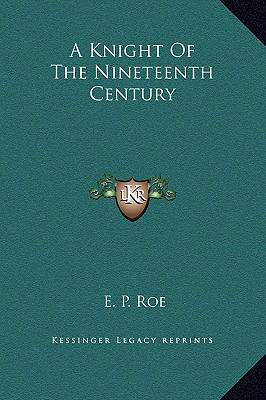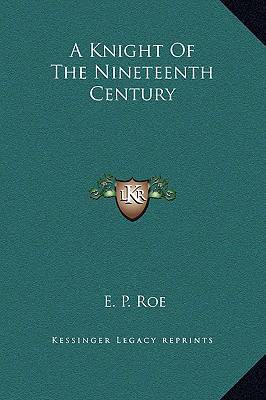
- Afhalen na 1 uur in een winkel met voorraad
- Gratis thuislevering in België vanaf € 30
- Ruim aanbod met 7 miljoen producten
- Afhalen na 1 uur in een winkel met voorraad
- Gratis thuislevering in België vanaf € 30
- Ruim aanbod met 7 miljoen producten
Zoeken
Omschrijving
""A Knight of the Nineteenth Century"" is a novel written by E. P. Roe. The story is set in the 19th century and follows the life of a young man named Maurice Wynne. Maurice is a wealthy and privileged young man who has never known any hardship or struggle in his life. However, when he falls in love with a poor woman named Hester Gray, he begins to see the world in a different light. As Maurice and Hester's relationship develops, Maurice becomes more and more aware of the social injustices and inequalities that exist in society. He begins to feel a sense of responsibility to use his privilege and influence to help those less fortunate than himself. The novel explores themes of love, social justice, and the responsibility of privilege. It also provides a glimpse into life in the 19th century, with its class divisions and societal norms. Overall, ""A Knight of the Nineteenth Century"" is a thought-provoking and engaging novel that encourages readers to consider their own role in creating a more just and equitable society.But while his action did suggest hope, it also contained elements of discouragement. She did not find fault with what he proposed to do, but with the spirit in which he was entering on his most difficult task. His knowledge of the world was so crude and partial that he did not at all realize the herculean labor that he now became eager to attempt; and he was bent on accomplishing everything in a way that would minister to his own pride, and proposed to be under obligations to no one.This scarce antiquarian book is a facsimile reprint of the old original and may contain some imperfections such as library marks and notations. Because we believe this work is culturally important, we have made it available as part of our commitment for protecting, preserving, and promoting the world's literature in affordable, high quality, modern editions, that are true to their original work.
Specificaties
Betrokkenen
- Auteur(s):
- Uitgeverij:
Inhoud
- Aantal bladzijden:
- 370
- Taal:
- Engels
Eigenschappen
- Productcode (EAN):
- 9781169330733
- Verschijningsdatum:
- 10/09/2010
- Uitvoering:
- Hardcover
- Formaat:
- Genaaid
- Afmetingen:
- 178 mm x 254 mm
- Gewicht:
- 857 g

Alleen bij Standaard Boekhandel
+ 135 punten op je klantenkaart van Standaard Boekhandel
Beoordelingen
We publiceren alleen reviews die voldoen aan de voorwaarden voor reviews. Bekijk onze voorwaarden voor reviews.











